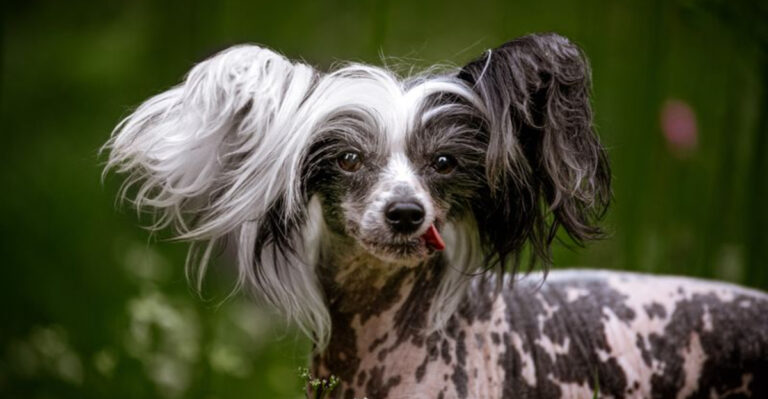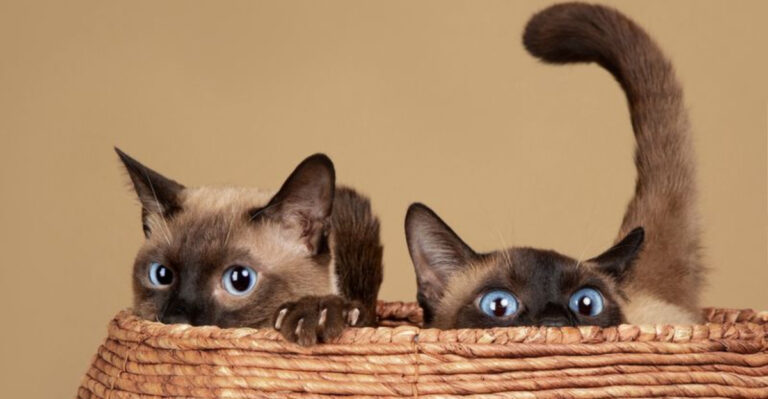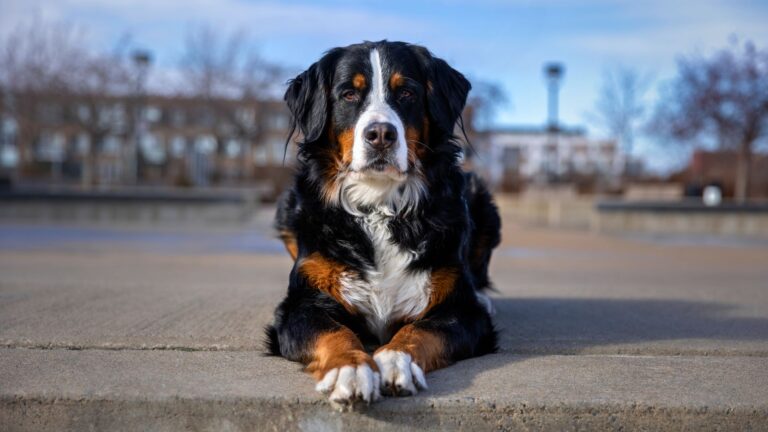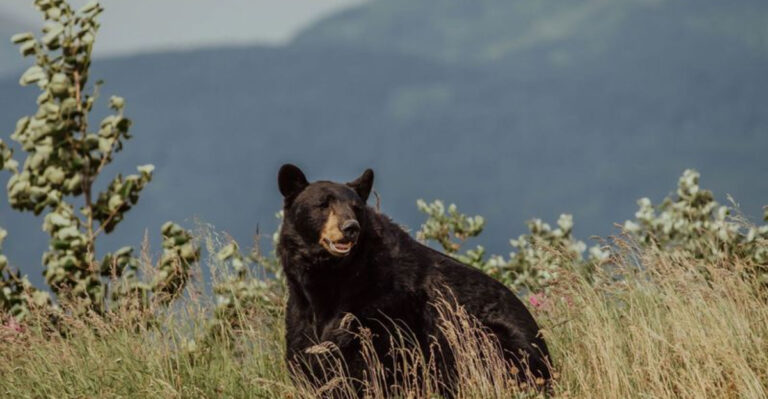17 Eye-Opening Reasons Why Pet Raccoons Are A Bad Idea
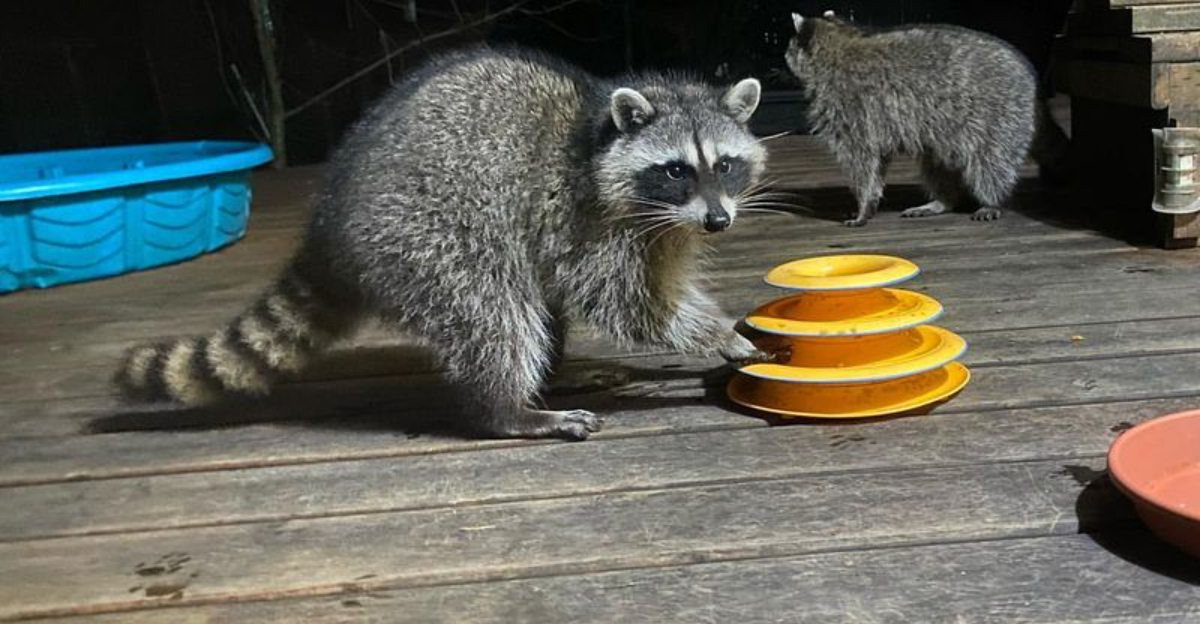
Thinking a raccoon would make the perfect pet? Think again! While their adorable faces and quirky antics may seem irresistible, keeping a raccoon as a pet is fraught with challenges.
From legal issues to behavioral unpredictability, owning a raccoon can quickly turn into a wild adventure you’re not prepared for.
1. Unpredictable Behavior
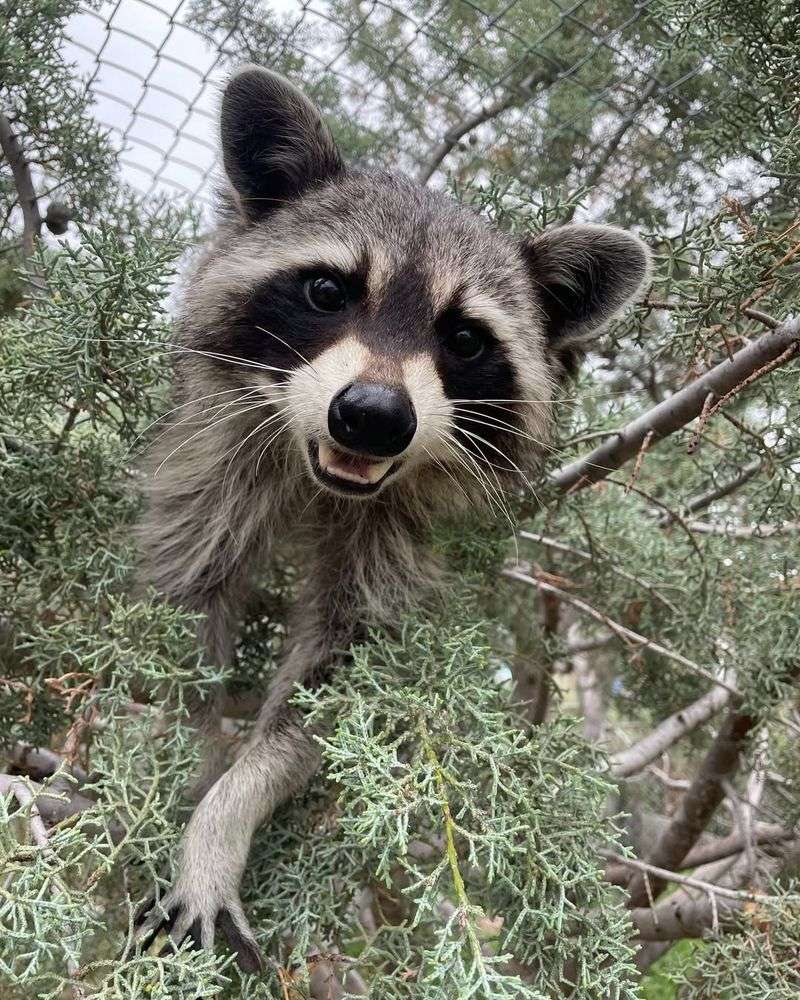
One of the major challenges of owning a pet raccoon is their unpredictable behavior, especially as they grow older. While baby raccoons may seem cute and manageable, adult raccoons can develop strong instincts and natural behaviors that are difficult to control.
Raccoons are intelligent and curious animals, often getting into everything in sight. They may engage in destructive behavior or become aggressive, especially if they feel threatened or stressed.
Unlike domestic pets like cats and dogs, raccoons don’t have predictable responses to human interaction, and their tendency to bite or scratch when startled or provoked is common.
2. Risk Of Zoonotic Diseases
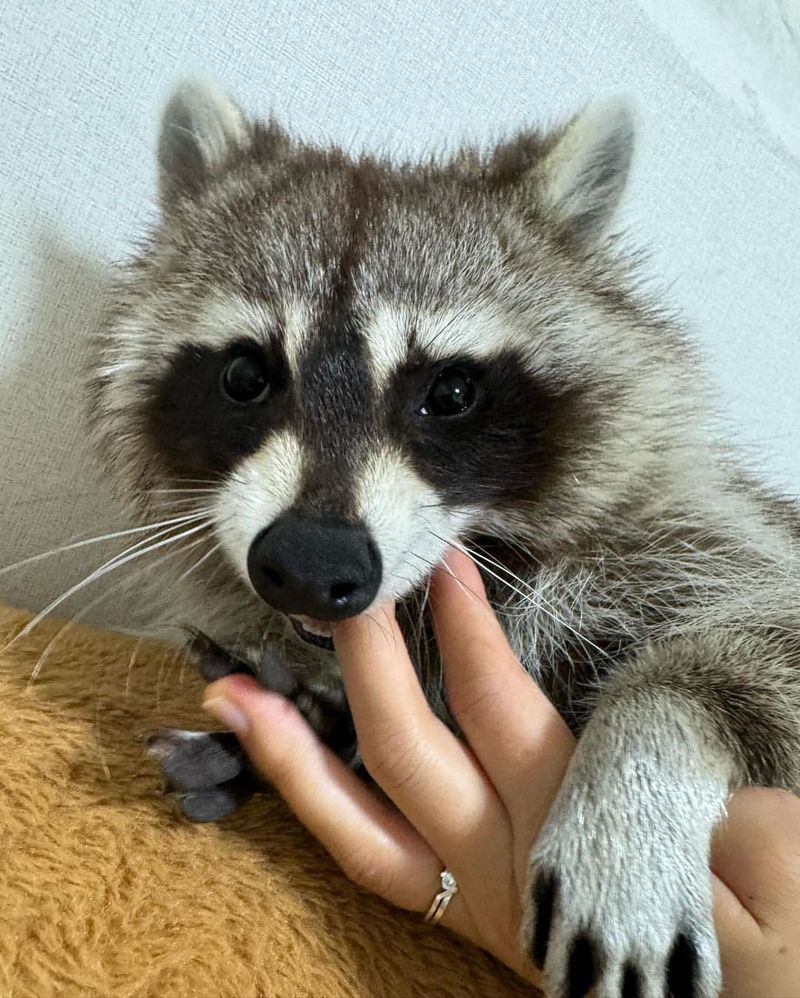
Raccoons are known to be carriers of several zoonotic diseases, which are diseases that can be transmitted between animals and humans. These diseases include rabies, leptospirosis, and roundworm, among others.
Rabies, in particular, is a serious concern as it can be fatal if contracted and can be transmitted through bites or saliva. Leptospirosis, which is spread through contaminated water or urine, can cause severe kidney and liver damage in both animals and humans.
3. Destructive Behavior
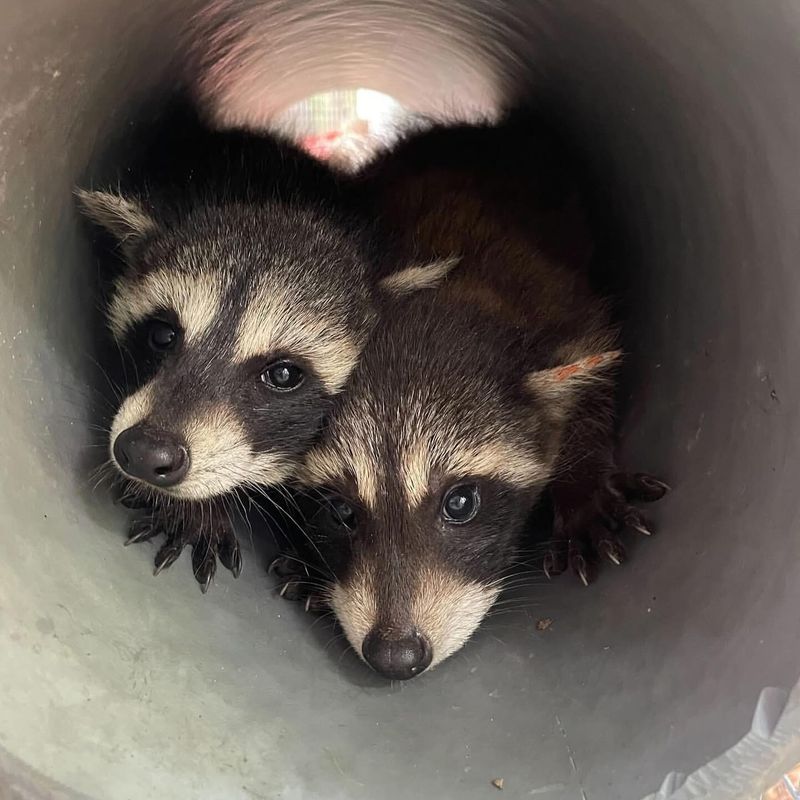
Raccoons are notorious for their destructive behavior. Their natural curiosity leads them to explore and often destroy household items. Think about a raccoon rummaging through your kitchen, toppling over trash cans, and tearing apart furniture.
It’s not an image most would find appealing. These animals are strong and persistent, capable of creating chaos in search of food and entertainment.
4. Legal Restrictions
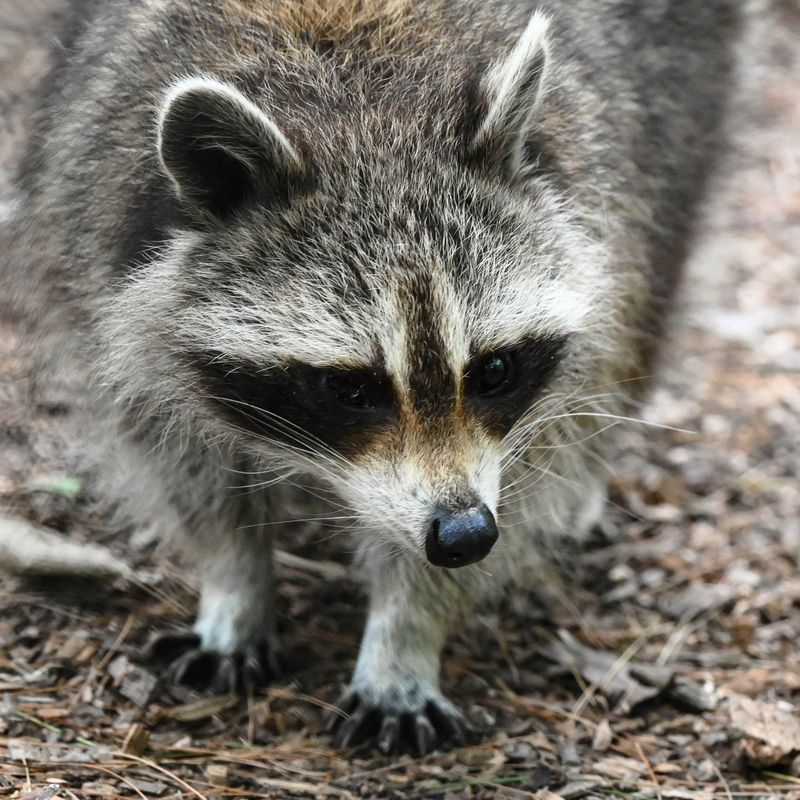
Owning a pet raccoon isn’t as simple as picking one up from the local shelter. In many places, it’s downright illegal. Laws regarding raccoon ownership vary by state, and in some cases, even by city or county.
Navigating these regulations can become a nightmare.
Besides the legal maze, consider the consequences if you get caught with an illegal pet. Fines, confiscation, and even legal action could follow. Is it worth the risk and potential heartbreak when your masked companion could be taken away?
5. Complex Dietary Needs
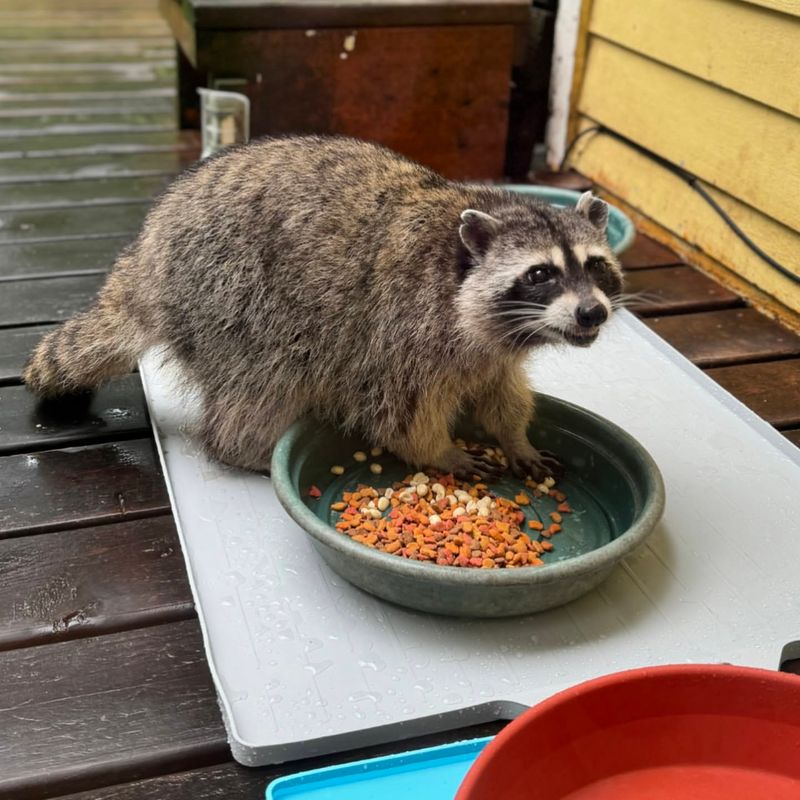
Feeding a raccoon is not as straightforward as opening a can of pet food. These creatures require a diet that mimics what they would eat in the wild. This includes a variety of fruits, vegetables, and proteins. Crafting such meals can become time-consuming and expensive.
A lack of proper nutrition can lead to health issues in raccoons. Too much convenience food can cause obesity and related complications, while an unbalanced diet might result in deficiencies.
6. Nocturnal Nature
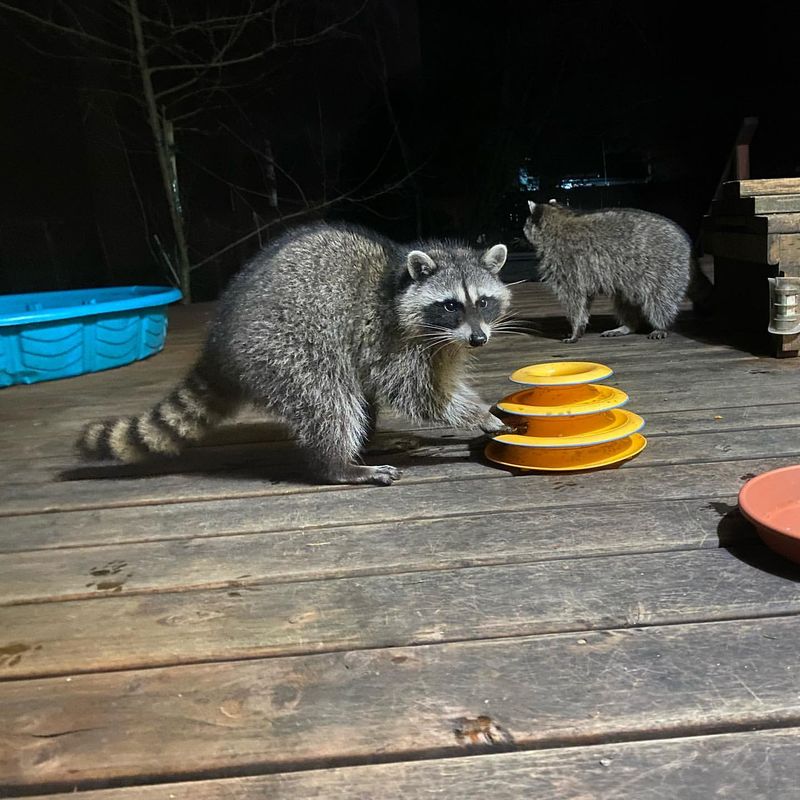
Raccoons are nocturnal creatures, meaning they are most active during the night. While you’re trying to catch some sleep, your raccoon will be wide awake, looking for entertainment and food.
Imagine the frustration of being jolted awake by the sound of a raccoon rummaging through the kitchen or knocking over household items. This constant night-time activity can affect your sleep quality and overall well-being.
7. Health Risks
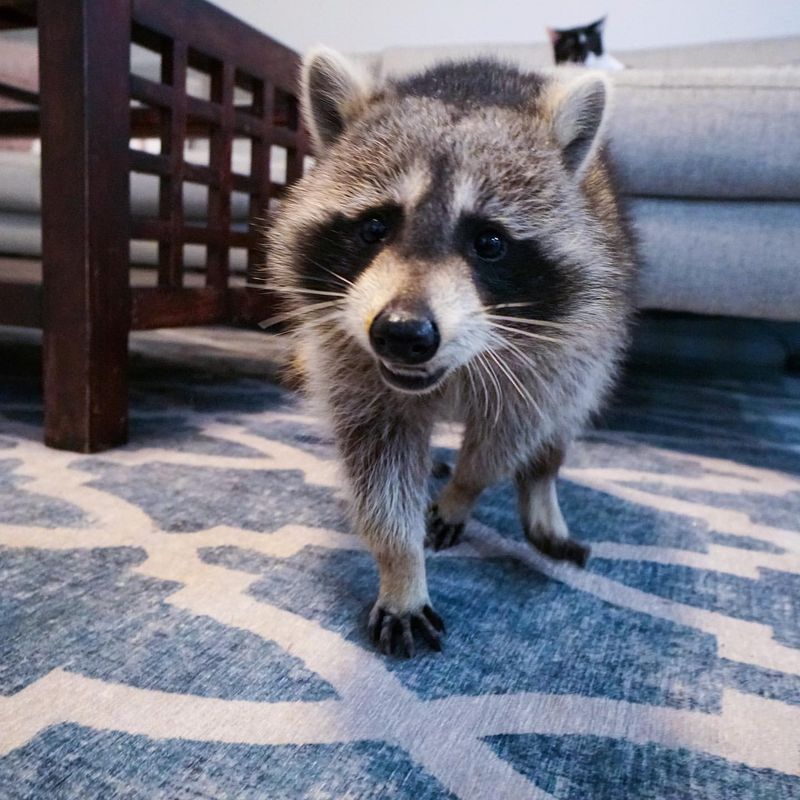
Raccoons can carry a variety of diseases that pose health risks to humans and other pets. Rabies, raccoon roundworm, and leptospirosis are just a few of the illnesses these animals can transmit. The presence of a raccoon in your home requires constant vigilance to prevent potential health hazards.
Handling a sick raccoon can be dangerous, as they might lash out when feeling unwell. The medical care required for a raccoon can also be challenging, given the need for specialized veterinarians who are equipped to treat exotic pets.
8. Aggressive Tendencies
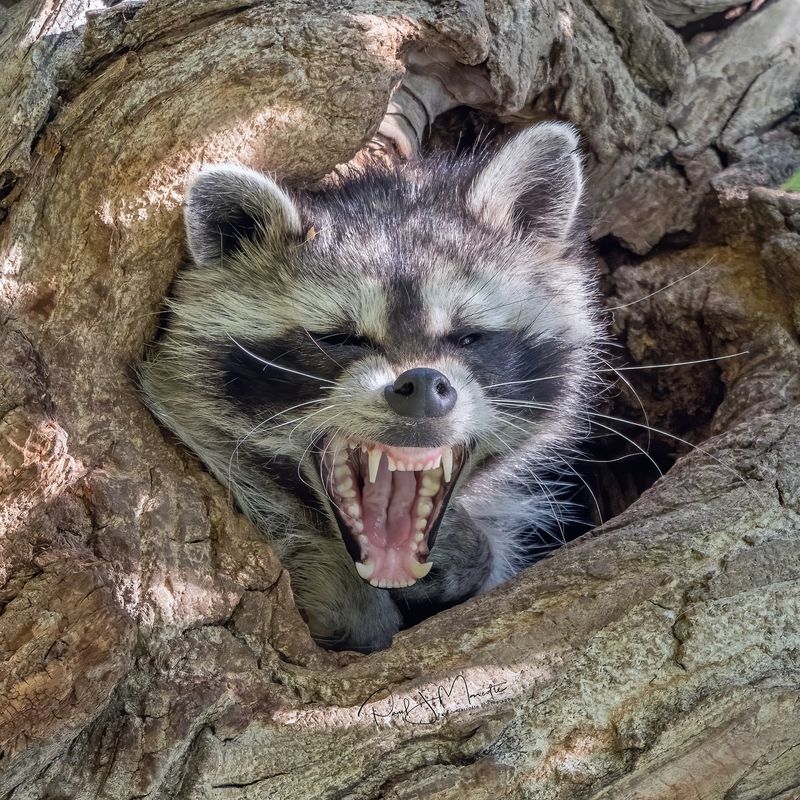
Raccoons, despite their cute appearance, can exhibit aggressive behavior, especially when threatened or stressed. This can pose a danger to you, your family, and other pets. A startled raccoon may bite or scratch, leading to possible injuries and infections.
Understanding raccoon behavior is key to minimizing aggressive incidents, but this requires time, patience, and expertise. Raccoons are not domesticated animals and may not respond predictably to situations like a dog or cat would.
9. Escape Artists
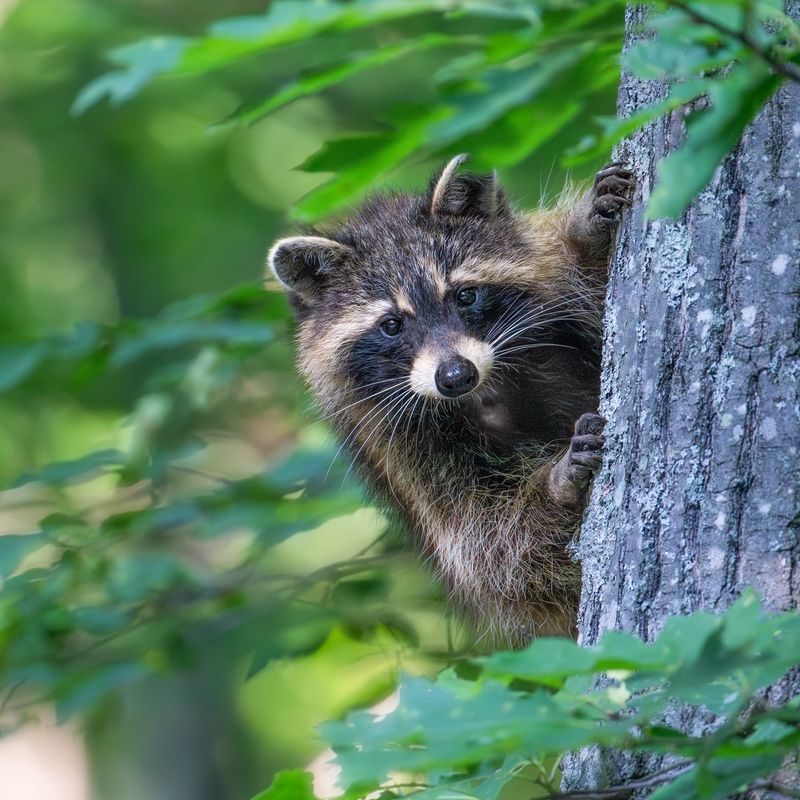
Raccoons are incredibly resourceful and intelligent creatures, known for their escape artist skills. They can open doors, unlatch windows, and squeeze through small openings, making it challenging to keep them contained.
Their ability to escape not only poses a risk of losing your pet but can also lead to damage around the house. Security measures like locks and reinforced barriers may be necessary, adding to the complexity of keeping a raccoon as a pet.
10. High Maintenance
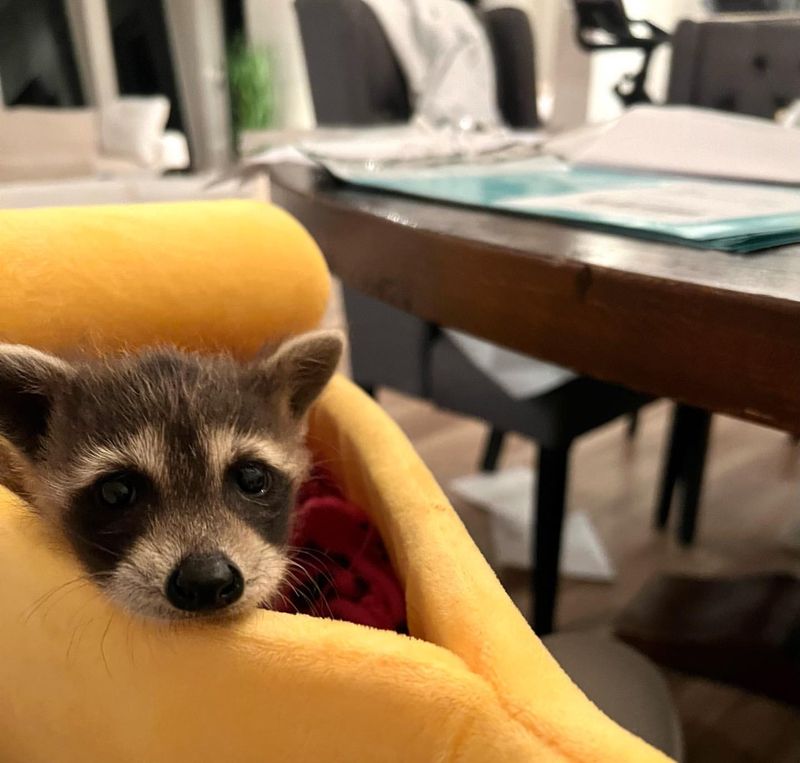
Raccoons are high-maintenance animals, requiring constant attention, care, and environment management. Their mischievous nature means they can get into trouble quickly, often requiring pet-proofing measures around the house.
Beyond just feeding and monitoring their health, raccoons need mental stimulation and physical exercise to stay healthy and happy. This can mean dedicating a significant portion of your day to their care.
11. Socialization Challenges
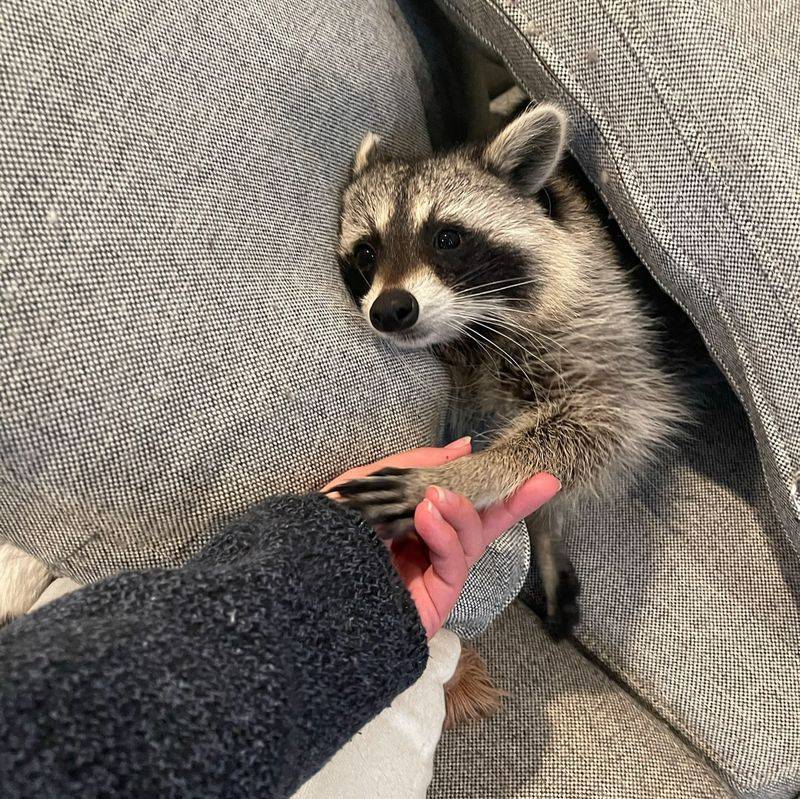
Raccoons are wild animals, and their socialization needs can differ greatly from domesticated pets. They may struggle to understand or adapt to human social cues, leading to isolation or stress.
Unlike dogs or cats, raccoons may not form the same emotional attachments to humans, and their interactions can be unpredictable. This can make establishing a bond or training them challenging.
12. Lack Of Veterinary Care
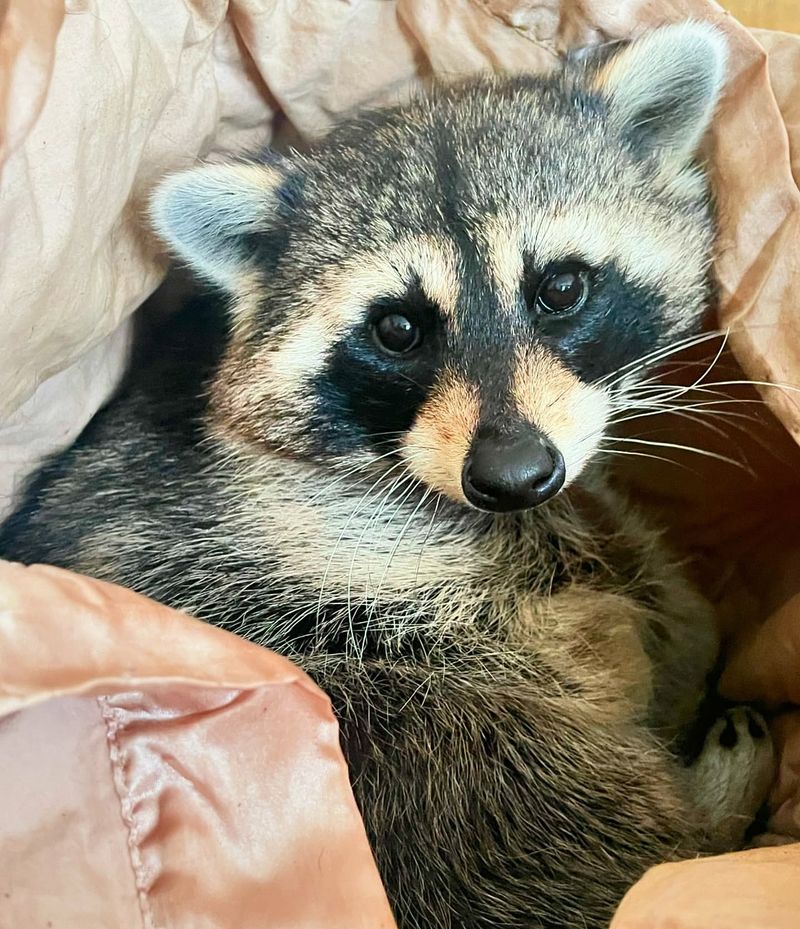
Finding veterinary care for a raccoon can be a daunting task. Many vets are not equipped or experienced to handle exotic animals, and those who are may not be nearby.
Regular check-ups, vaccinations, and emergency care are essential for a raccoon’s health, but locating a vet who can provide these services can be a challenge. This can result in long travel distances and increased expenses for specialized care.
13. Odor Issues
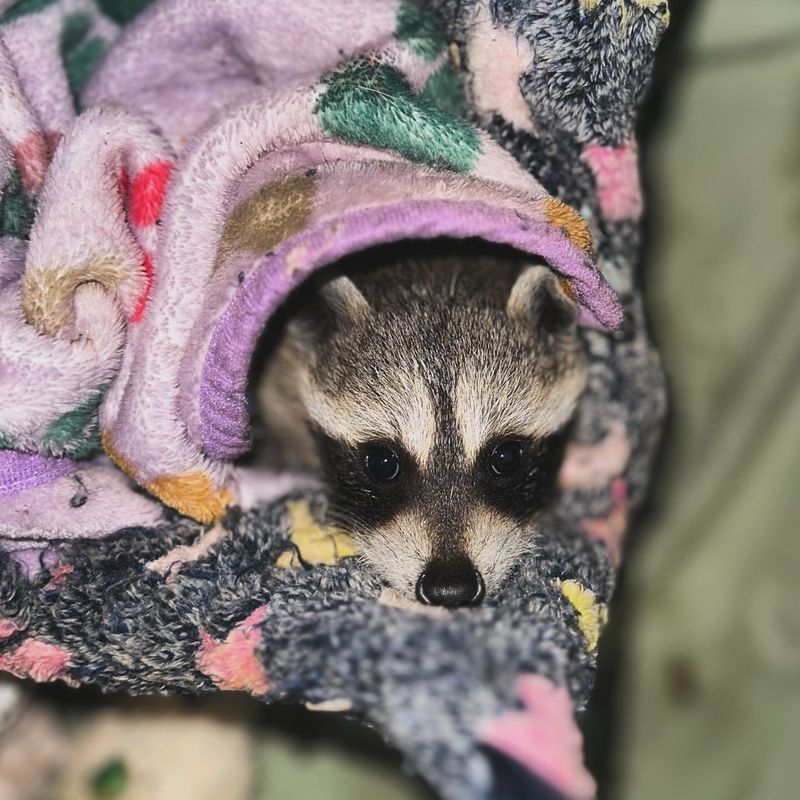
Raccoons have a distinct musky odor that can become quite pronounced in a home environment. This smell can permeate furniture, clothing, and carpets, creating a lingering scent that is difficult to remove.
Regular cleaning and airing out of living spaces are necessary to manage the odor, but it can still linger despite these efforts. The smell is not only unpleasant but can also be embarrassing when guests visit.
14. Chewing Habits
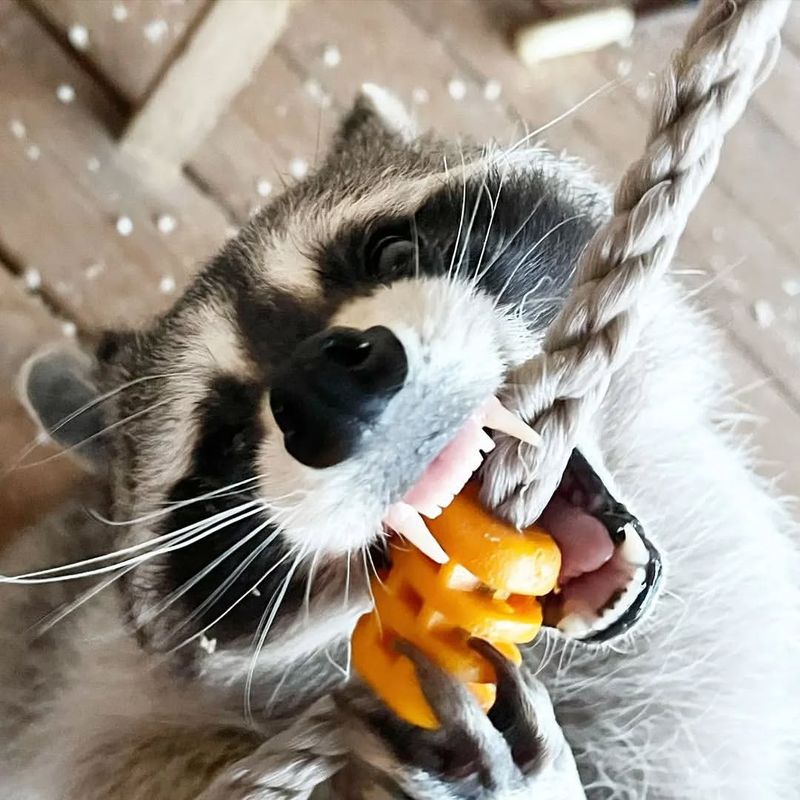
Chewing is a common behavior in raccoons, driven by their natural instinct to explore with their mouths. This habit can lead to significant damage to household items, from wooden furniture to electrical cords.
Raccoons don’t differentiate between toys and valuable possessions, meaning anything within reach is at risk of being chewed or destroyed. This can be not only frustrating but also costly to repair or replace damaged items.
15. Inability To Domesticate
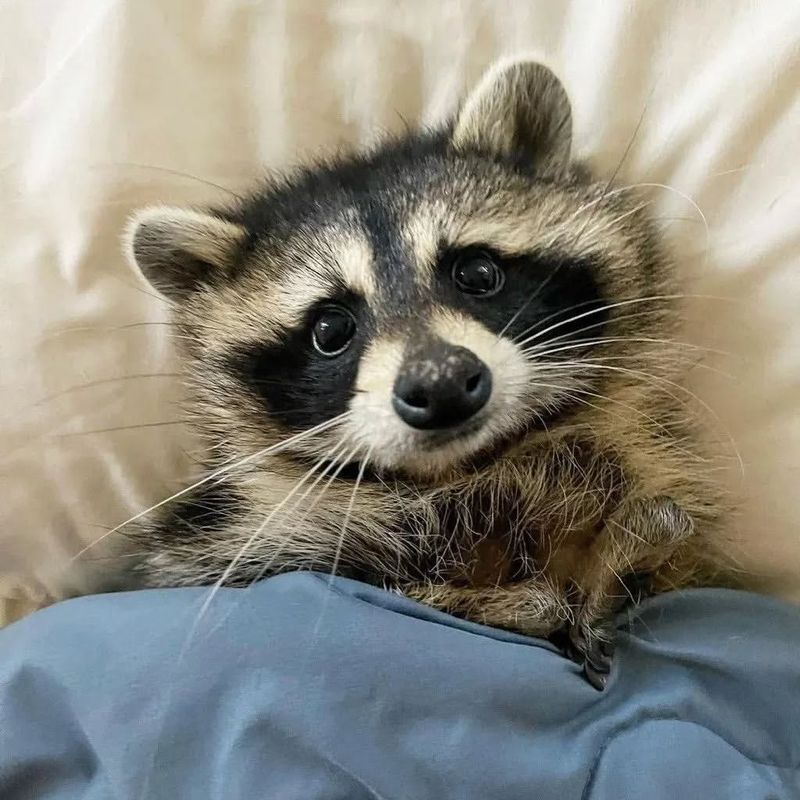
Raccoons are inherently wild animals, and despite efforts to train them, they are unlikely to behave like domesticated pets. Their independent nature means they may not respond well to commands or house rules.
Attempts to domesticate a raccoon can lead to frustration and disappointment as their natural instincts often override learned behaviors. This unpredictability makes them unsuitable for most households seeking a traditional pet experience.
16. Expensive Upkeep
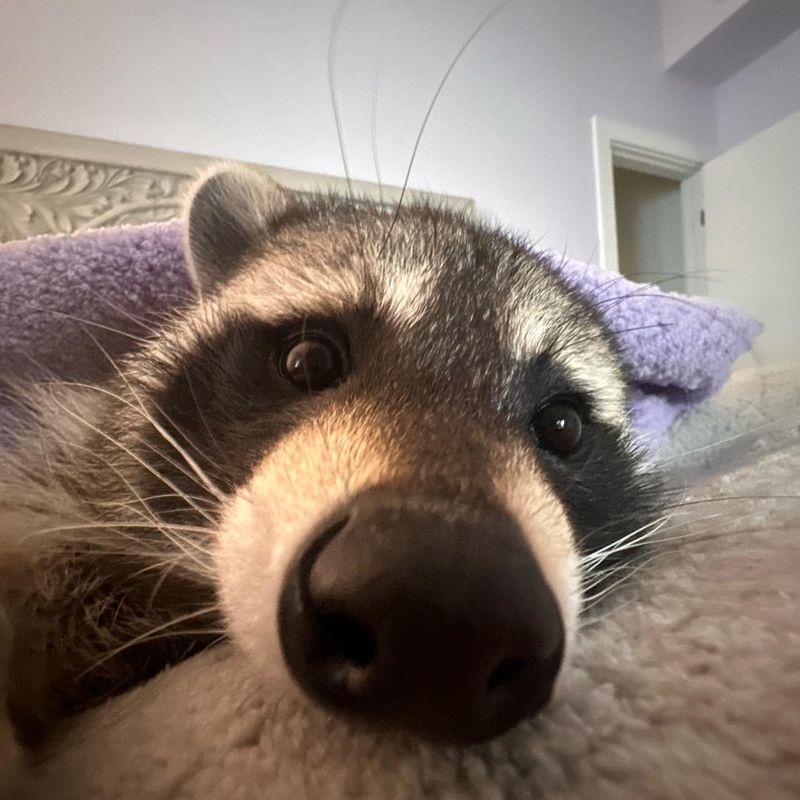
Keeping a raccoon as a pet can be surprisingly expensive. From specialized diets to veterinary care and home modifications, the costs quickly add up.
Pet-proofing your house, providing enrichment activities, and ensuring proper health care are all necessary for a raccoon’s well-being. These expenses can strain a budget, especially when unexpected costs arise.
17. Longevity And Commitment
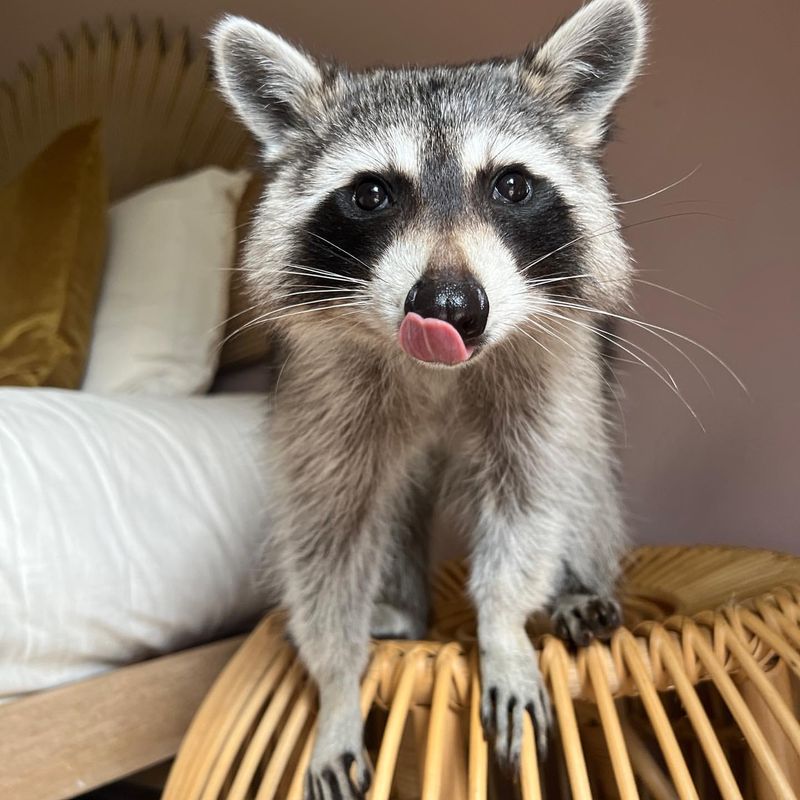
Raccoons can live for a decade or more, meaning they require a long-term commitment from their owners. This longevity necessitates a stable environment and continuous care throughout their life.
Life changes, such as moving, changes in family dynamics, or financial shifts, can complicate the ability to care for a raccoon over the years. This long-term responsibility is not something to take lightly.

